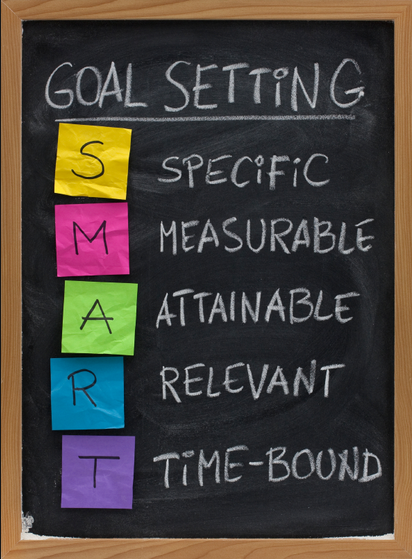Goals For Novice Traders
Post on: 5 Апрель, 2015 No Comment

When you begin trading, there are a lot of questions. With all the information out there it can be hard to filter through and decide where to start. Setting goals can help, but often novice traders set the wrong type of goals when they decide to start trading. With this is in mind, as a novice trader your initial goals should help you to eventually make money, but making money should not be your goal. Instead, opt to make your initial goals about process and emulating traits of professional traders .
Make Your Goals about Process not Results
Initially, traders want to make goals about numbers: I will make 1% per day on my $30,000 capital as a day trading example, or I will make 30% per year as an investing example. While it seems simple, in order to get to certain percentage or dollar targets you will need to refine your market approach and knowledge and hone your discipline. By plunging into the market and expecting to make a certain amount of money, the goal becomes almost impossible to reach over the long-term. These types of goals require that the trader actually know the capabilities (and limitations) of the trading plan they are employing — not think they know, but actually know.
Traders must know the potential and pitfalls of the strategy they are employing. Based on the method being used, it may be impossible to reach a dollar or percentage goal, but it still could be valid and provide a good return; therefore, the trader must either abandon the strategy or deviate from it in an attempt to find more yields. For many traders this becomes an endless cycle of abandoning strategy after strategy or never being able to adhere to a plan.
Looking at charts in hindsight makes trading look easy, those who trade know that it is harder in reality and real-time. Novice traders must not only become knowledgeable about the markets, but also about themselves.
When starting out, do not set goals for precise results, instead, focus on process. In order to achieve great results there is a process. Focus on the process and attempt to perfect that, and results happen on their own. Attempt to achieve results without perfecting the process, and the markets will likely continually take your money.
Focusing on the Process
Just like any other business, to become a good trader you must focus on a solid process. Result will not come instantly. Most businesses take quite a bit of time before profits come, and many, many more businesses fail completely. Trading is no different. Results will not come instantly, and if they do it is likely due to luck. Without understanding how the markets truly work and developing a winning process, the results are based on chance, not skill.
In order to build a winning process for trading the markets, try using these three goals. These may not seem like goals at all, but in fact are very hard to do, and even professional traders battle with these issues throughout their careers. Focus on mastering these areas from the very beginning, and positive results are more likely to ensue.
Always Have a Plan
In business school, you are taught that to start a business you need a business plan. Trading is a business. Therefore, every time you trade you must be trading according to a well thought out and calculated plan.
The plan should include how trades will be entered, exited (profits and losses) and how money will be managed. The plan should be very detailed, outlining the markets that will be traded, risk parameters, if filters will be used on trade signals, what constitutes a trade and exit signal, position size and what market environments will be traded (and how that will be determined) such as ranges or trends.
Therefore, the goal here is to create a complete plan for trading the markets. before making another trade.
Learn NOT to Trade

Especially when a specific dollar amount is the goal, traders will push to achieve that goal even when opportunities are not present. The market does not present statistically probable trading opportunities at all times there are often times when you will be far better off sitting on your hands or watching TV than trading. This does not sit well with most people; they want to continually be doing something. In the markets this can slowly (or quickly) erode profits that came during good trading times.
When, and when not, to trade should be covered in detail in the trading plan. Yet, trading during slow times or making impulsive trades outside the scope of the plan is such a common issue that it deserves special attention. Make one of your goals to be as disciplined as possible. only making trades that are outlined in the plan.
Keep it Simple — Avoid the Mysterious
A complex strategy can be very alluring. Many people believe that because something is complex it is more likely to work than something that is simple. Avoid getting too fancy with your analysis and trading strategies. As you progress, avoid the desire to make a winning trading plan more complex, usually this only results in destroying the profitability of it.
If you like the stock market, stick with trading stocks. If you like currencies, then trade FOREX. Focus on only one market and a couple of simple strategies when starting out.
The goal here is to avoid constant tinkering in order to improve performance, or continually switching markets, strategies or analysis methods. Stick to the plan. If it occasionally needs to be reworked a bit that is fine, but keep the revisions simple and avoid getting overly complex.
The Bottom Line
When starting out, be a niche trader focusing on a very few small manageable goals. These goals should focus on the process of becoming a successful trader hone attributes which professional traders have and not on results. Results will come in time if you are trading according to a trading plan which you devise and stick to, are not trading when there are no opportunities (this should be covered in the plan) and avoid getting too complex. Keep it simple to start and focus on process, not results.














